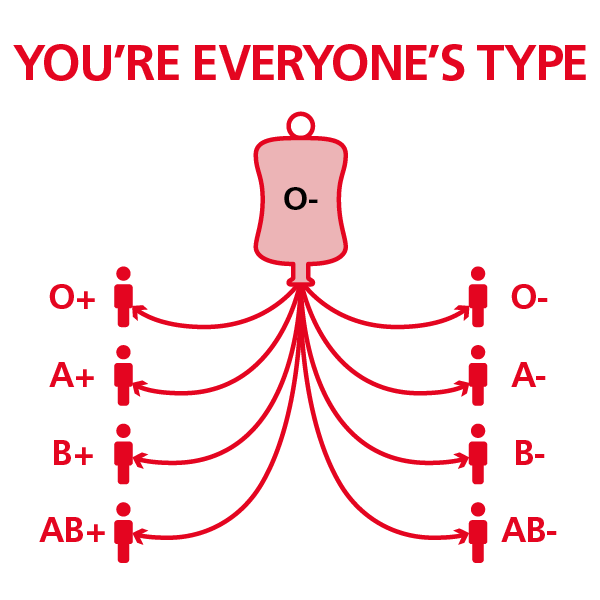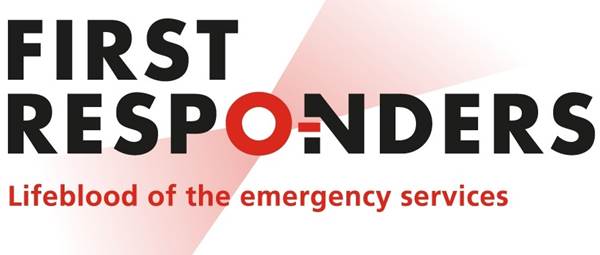O negative blood type
Your blood type is determined by genes inherited from your parents.
Whether your blood type is rare, common or somewhere in between, your donations are vital in helping save and improve lives.
How rare is O negative blood?
Around 1 in 7 people have O negative blood
Around 13% of our blood donors have O negative blood.
In comparison, 35% of donors have O positive blood.
Air ambulances and emergency response vehicles carry O negative supplies for emergencies. Collecting enough O negative blood is a constant challenge and we always need your donations.
Who can receive O negative blood?
Everyone can receive O negative red blood cells
O negative donors are often called ‘universal donors’ because anyone can receive the red blood cells from their donations.
Although about 8% of the population has O negative blood, it accounts for around 13% of hospital requests for red blood cells.

What blood can O negative people receive?
Only O negative blood
People with O negative blood can only receive red cell donations from O negative donors.
Why is O negative blood important?
It’s used in emergencies
O negative blood is often called the ‘universal blood type’ because people of any blood type can receive it.
This makes it vitally important in an emergency or when a patient’s blood type is unknown.

